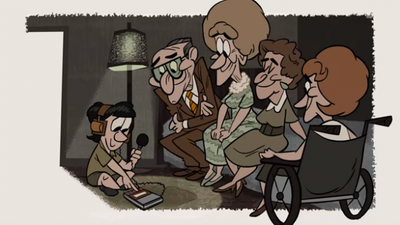After the world heard about a series of mass rapes that took place in the Congo just a few miles from where United Nations forces were supposed to be keeping the peace, the U.N. launched an investigation into the incident and the disturbing trend of violence against women in the region.
Margot Wallstrom, the U.N. representative on sexual crime in conflict, traveled to the village where the rapes occurred to hear the victims' stories. She was greeted with celebration in the streets because villagers hoped someone had finally come to put an end to the violence. Wallstrom held a meeting where she asked women to sit at the front and tell their stories one by one; men were asked to go to the back or outside.
A spokesperson from the troops who were supposed to be protecting the women said his army would "do their best" to keep them from further harm, but his forces lack the necessary communication skills and training to do so, according to an internal report.
The International Criminal Court has also been arresting leaders around the world who represent the Rwandan rebel group responsible for the rapes. So far, the Congolese government has not done much to protect their women, but now that the world is watching, they are feeling increased pressure.
TEACHERS USING THIS VIDEO IN THE CLASSROOM SHOULD BE AWARE THAT IT CONTAINS SENSITIVE DIALOGUE ABOUT RAPE AND VIOLENCE AND SHOULD WATCH THE VIDEO BEFORE SHOWING IT TO STUDENTS.
Quotes
"You are our fellow women, and we believe our enemies wouldn't hesitate to rape you if they were given the opportunity. They are merciless." - Congolese rape survivor
"All that I can promise them is that we will try our best." - U.N. peacekeeping soldier
"There has to be an international reaction from both the European Union, from countries all over the world, to support and follow through what the United States have already decided." Margot Wallstrom, U.N. representative on sexual crime in conflict
Warm Up Questions
1. Where is the Congo?
2. What is the role of the United Nations?
3. What is tribal warfare? How does it differ from warfare between two countries?
4. What is gender-based violence?
Discussion Questions
1. Do you think arresting top Rwandan leaders around the world will help stop the rapes happening in the Congo? Why or why not?
2. What do you think needs to be done to ensure the women in Congolese villages stay safe?
3. If a similar atrocity happened in the U.S., who do you think would step in to protect the victims? Why do you think it's so hard to get adequate protection for them in the Congo?
4. Why do you think the U.N. official who visited the Congolese village in the video had women come to the front of the room during her meeting and asked men to go to the back or wait outside? How might this help address the situation?
Additional Resources
Civil War in Congo Tied to Natural Resources and Ethnic Rivalries
Hope, Fear Mark Congo's First Democratic Elections in 46 Years


